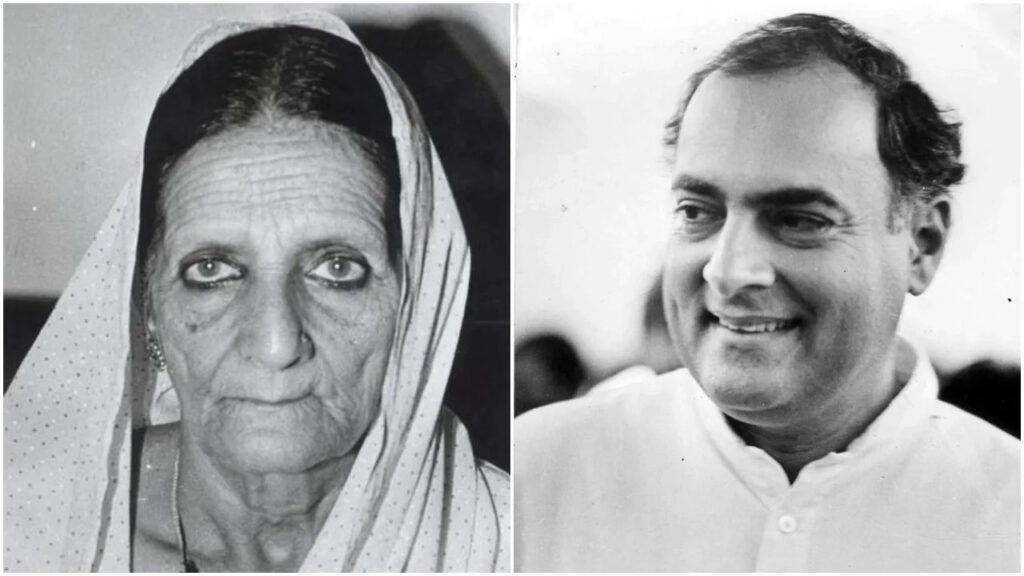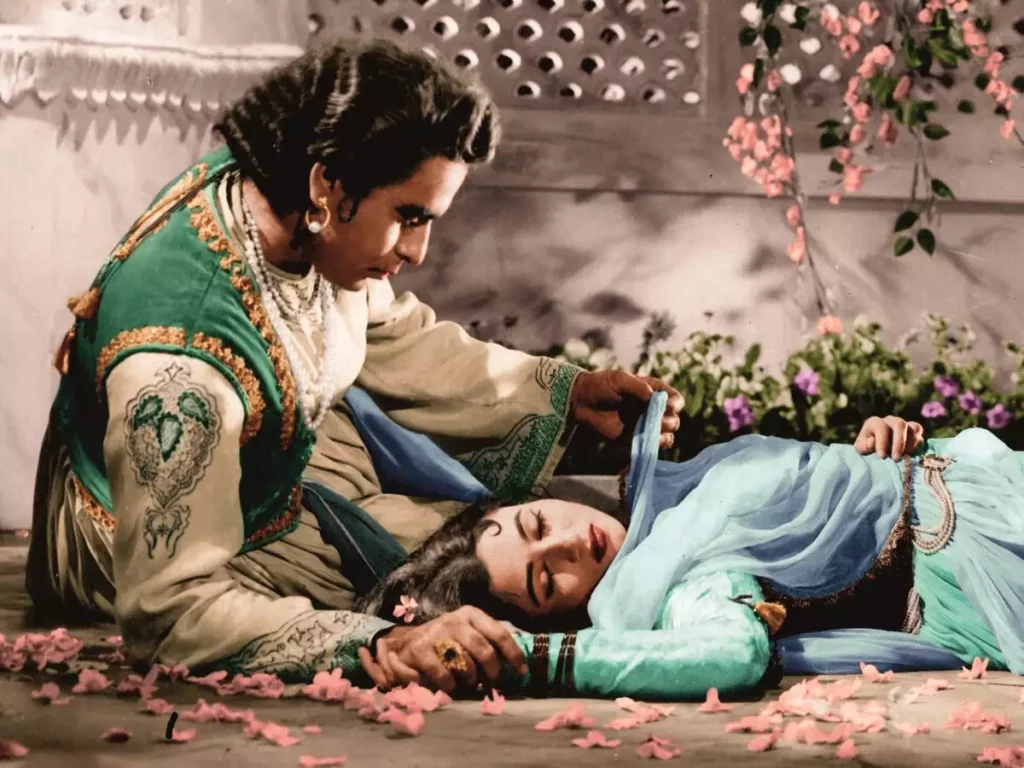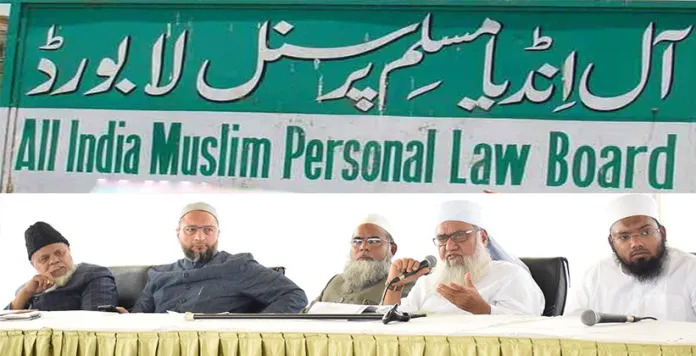Open Letter to Mr. Owaisi & Members of the All India Muslim Personal Law Board
Why has AIMPLB Avoided Codifying Muslim Personal Law?
Dear Mr. Owaisi & members of AIMPLB,
Namaste,
Recent reports about the introduction of a Uniform Civil Code (UCC) is being projected by several Muslim leaders, including you, as an attack on the sacred most principles of Muslim Personal Law.
However, Part IV, Article 44 of the Indian Constitution states categorically that, “The State shall endeavour to secure the citizen a Uniform Civil Code throughout the territory of India”.
On the other hand, no one really knows what constitutes Muslim Personal Law in India. And yet, Muslim leaders threaten mayhem and civil war if the Government of India makes even a feeble attempt to reform the antiquated practices that go under the rubric of Muslim Personal Law.
This confusion regarding what constitutes Muslim Personal Law has been deliberately allowed to prevail ever since the British enacted the Muslim Personal Law (Shariat) Application Act, 1937 “with the aim to formulate an Islamic law code for Indian Muslims”. Bizarre as it may sound, while accepting the jurisdiction of Sharia, the Act does not even provide nominal mention of what exactly constitutes Muslim Personal Law. It is perhaps the first time in world history that a law was enacted without specifying legal provisions that come under that law!
After the transfer of power from Britain in 1947, the Congress party allowed the Sharia Act to continue unhindered with the same lack of clarity.
The result is truly bizarre. Forget common citizens of India (both Muslims and non-Muslims), even judges and lawmakers are clueless as to exactly what rights and obligations fall under the ambit of Muslim Personal Law.
Therefore, whenever a dispute arises in Muslim families or in the case of Hindu-Muslim couples, the parties concerned are expected to blindly follow antiquated and even outrageous fatwas by Muftis, Mullahs, Maulvis and Maulanas.
The problem gets more murky in cases involving Hindu, Christian, Sikh, Bauddh or Jewish women who end up marrying Muslim men out of ‘free choice’ or as victims of ‘Love Jihad’. In most such cases, the women invariably end up shell shocked at the practices they are expected to follow, once they become part of the Muslim community. Since, Islam allows no exit routes and punishes Apostasy (leaving Islam) with the death penalty, they are trapped in lethal situations.
Since most Muslims consider conversions of non-Muslims to Islam as their mandatory obligation, the least that AIMPLB owes the Muslim community, as well as the non-Muslims targeted for conversions, is information regarding their duties and obligations under Islam before they accept conversion.
This can be done only if the Muslim Personal Law is properly codified and made easily accessible to the public at large in native languages of the land. Only then can conversions be treated as ‘voluntary’. Else, each conversion can well be termed fraudulent.

At the time of Shah Bano controversy, the then prime minister, Rajiv Gandhi was coerced by the Islamist lobby to trash the Supreme Court judgement and force the Parliament to enact The Muslim Women (Protection of Rights on Divorce) Act, 1986. This was ostensibly done to protect the rights of Muslim women in sync with Muslim Personal Law. But this Act is no less vague than the Sharia Act of 1937 enacted by the British.
At the time of Shah Bano controversy, the AIMPLB had assured the Congress government that they would codify the Muslim Personal Law and also ensure that Muslim women got fair treatment within marriage and upon divorce. However, nearly four decades later, people in India are clueless about what constitutes Muslim Personal Law.
AIMPLB cannot be allowed to continue with this Gadbad Ghotala any longer because it has very serious implications for the lives of Muslims and non-Muslims alike. Let me enumerate some of the obvious fallouts:

- Lack of knowledge about what constitutes Sharia is endangering the lives of non-Muslim women who end up marrying Muslims under the illusion that the glamorized nawabi culture shown in Bollywood films is the real face of Islam or that Islam is no different from any other religion – only their puja paddati differs!
- Islamists come down heavily on those who merely discuss prevalent practices of Islam. They are prone to pronouncing death sentences on those who cite or quote from fatwas by Muftis, Mullahs, Maulvis and Maulanas, claiming that their fatwas are backed by authoritative texts of Islam. Given this scenario, non-Muslims live under terror and are afraid to even quote from well-established authorities.
- This has made it impossible for genuine academic scholars to study or write about Islam in the spirit of free enquiry. This has stunted research on one of the most important and fast growing religions on this planet.
- Islamists are pressing upon the governments around the world to enact laws against writings or speech critical of Islam or its practices. Now that the Indian State has also moved to enact a law on the same lines, there is genuine fear that this law will be used mainly against non-Muslims.
- Most worrisome of all, judges, including those in the Supreme Court are petrified of falling foul of Islamists by pronouncing judgements that may trigger Islamic hostility. Unlike with Hindu practices which are open to critical analysis (both fair & vicious), journalists are petrified of investigating some of the seamy practices within the Muslim community because any report that is even mildly critical invites the charge of Islamophobia, which often gets the Sar Tan Se Juda Brigade mobilized into action.
Given this scenario, it is incumbent upon the AIMPLB to let the public at large know with utmost clarity and transparency what are the core mandates of Muslim Personal Law so that those who enter Islam know their obligations and duties in minute detail, as it is the case with the Hindu codified law.
Why I am raising this issue at this point: The urgency for approaching the AIMPLB for clarity at this point in time is that a highly educated young woman from a Hindu family whom I have known closely from her childhood, approached me with disturbing questions regarding Muslim Personal Law. She got interested in the issue because she is contemplating marrying a Muslim with whom she has been in a relationship with for a couple of years.

She had begun to study Islamic doctrines and social practices in all seriousness in order to be mentally prepared for the duties and obligations expected of her after marrying a Muslim. Suddenly one day late at night she called me in a state of deep agitation because she had hit upon certain fatwas and texts that declared that Muslim men are allowed to have sex with their mothers, daughters and sisters. When she asked her fiancé if this was true, he was outraged and became abusive. He began to accuse her of Islamophobia, when all she wanted was an assurance with evidence that this was not the case.
Since the fiancé was not willing to engage in a calm discussion on the subject, she approached me for clarification. Though I am no scholar of Islam but I looked closely at the textual references she sent me. From the references she cited, it seemed that her concerns were valid.
Therefore, in all humility, I present the following facts before members of the AIMPLB, for clarification and guidance.
Upon researching on the internet, I discovered that a simmering debate has been raging within educated Shia and Sunni circles on whether or not Muslim men are allowed to have sex with their own mahrams (mother, sister, daughter, etc).
The most heated debate on the subject took place in academic circles many decades ago after the editor of the famous publication Rizwan blamed Shias for this abhorrent practice:
Not only this, the Shia faith is so dirty that it is permissible to have sexual relations even with women in the prohibited degree (Mahram) provided one has wrapped his private part with silk. Zainul Abideen Haeri Mazandarani, a Shia scholar, writes in Zakhiratul Ma’ad (page 95) that: ‘Intercourse (with mother and sisters) is permissible after wrapping silk.’
The above – mentioned claim, that featured in Rizwan, was fiercely countered by Shia scholar Sayyid Sa’eed Akhtar Rizvi in an article titled ‘Imam Abu Hanifah, Wrapping of silk and other issues’. This rebuttal was published in the Al-Jawwad issue of February 1958. In his article, Rizvi gave many academic references to establish the Shia side of the story.
He literally invalidated the Rizwan claim by using what one calls a ‘selection bias’. He wrote how the reality regarding the issue is exposed the moment one reads the question and answer from Zakhiratul Maad, a book by Shia scholar Zain-ui-Abdin, in its entirety and not selectively. He then went ahead and listed the question and answer in full:
Question: If a person wraps a silk handkerchief or something like it over his sexual organ so that during intercourse or otherwise it does not come in contact with the woman’s body, is ritual bath (Ghusl) obligatory on him?
Answer: The obligation of ritual bath is not bereft of strength. And it is narrated from Abu Hanifah that it is permissible to penetrate the mahrams (mothers, sister, daughter etc.) after wrapping silk.
Rizvi explains that:
… this is the verdict of the Hanafis (Sunnis) and has no connection with the Shias. The editor of Rizwan omitted the words ‘it is narrated from Abu Hanifah’ and tried to grant the Shias that we fulfill our lust through mahrams after wrapping silk.
Rizvi also mocks the Rizwan article by saying:
… the ideology of Abu Hanifah that leave aside the obligation of ritual bath, it is even permitted to fulfill one’s lust in this way through women in the prohibited degree…
In his article, Rizvi explains who Abu Hanifah is:
…let me tell you who this Abu Hanifah is. He is your Imam and a leader of the Hanafis. Among the four Sunni schools of Islamic law, Numan bin Thabit Kufi is the head of the Hanafi school. He is also called ‘Abu Hanifah (r.a.)’.
Rizvi used many instances to show how it was a normal practice for Sunnis to engage in sexual intercourse with their own mahrams (mother, sister, daughter, etc).
He quoted from Pg. 381 of the Hidayah published at Matba Shaykh Yahya:
There was complete freedom that any Hanafi could perform Nikah with his mother, sister, daughter, paternal aunt, maternal aunt, niece, mother-in-law, daughter-in-law and all Mahrams and fulfill his lust through them and increase his progeny. It is written in the famous book of Hanafite teachings, Hidayah:
“If a person marries a woman with whom Nikah is prohibited and then, even if he goes to bed with her, according to Abu Hanifah the legal penalty would not be applicable on him.”
Rizvi further quoted from Pg. 381 of the Hidayah to establish the Sunni precedence of the practice:
And, according to Abu Hanifah, this marriage is correct according to the circumstance because it is capable of fulfilling the need. Women are daughters of Adam and capable of bearing children and this is the aim of marriage.
To further bolster his case, Rizvi adds another quote from Pg. 182 of Tafsir Kabir Vol. 3, Jamaliya, Egypt, First edition:
Fakhruddin Razi, a famous Sunni Imam, has described this verdict of Imam Abu Hanifah in his renowned Tafsir Kabir in the exegesis of the verse:
“Forbidden to you are your mothers…” (Surah Nisa 4:23)
“The third point mentioned by Shafei (r.a.) is that if a man marries his mother and even commits incest, the penalty is applicable to him while Abu Hanifah (r.a.) has said that the penalty is not applicable.”
Rizvi explains further, adding another academic source to the origin of the ‘wrapping silk’,:
However, Mazandarani has not used the words ‘wrapping silk’ without any reason because Imam Abu Hanifah did not want to trouble his followers by making it incumbent on them to all the time perform Nikah with mother, sisters etc. hence, he has prescribed this method for them. A verdict is present in Bahrur Raqaiq Sharh Kanzud Daqaiq (Book of Marriage) that fulfilling lust by Mahrams after wrapping silk etc. is permissible. If it is done with mahram women after a cloth is wrapped on one’s organ, its prohibition is not proved.
Rizvi further adds and refers to the Jameur Rumooz:
Similar advice is given to those who do not want to care about Islamic law during fasting days that they should wrap silk and fulfill their desires so that they remain safe of the obligation of atonement (Kaffarah) etc.
Not only this, but even the ritual bath would not become obligatory. This narration is present in Jameur Rumooz.
Hence, Aqa Mazandarani has replied that the ritual bath would be obligatory among we Shias in such a state also. However, according to Abu Hanifah, a great Imam of Ahlul Sunnat, if one copulates after wrapping silk, the ritual bath would not be obligatory on him. Not only this, but according to him, even mahrams can become objects of lust after wrapping silk.
Rizvi also quotes the stricture passed on Abu Hanifah by famous Muslim jurist, theologian, and mystic, Imam Ghazzali:
Abu Hanifah has almost destroyed the Islamic law. He made its ways dubious and changed its system..
Towards the end of his lengthy article, Rizvi adds about the Editor of Rizwan:
The editor of Rizwan would have known as to who that Abu Hanifah is, who permits fulfillment of lust even from mahrams (mother, sister, daughter, etc).
For the readers not very familiar with Abu Hanifah or the Hanafi school of Islam, here is what Encyclopaedia Britannica says about the same:
Abu Hanifah, in full Abu Hanifah al-Nuʿman ibn Thabit, (born 699, Kufah, Iraq – died 767, Baghdad), Muslim jurist and theologian whose systematization of Islamic legal doctrine was acknowledged as one of the four canonical schools of Islamic law (madhhabs). The Hanafi school of Abu Hanifah acquired such prestige that its doctrines were applied by a majority of Muslim dynasties. Even today it is widely followed in India, Pakistan, Turkey, Central Asia, and Arab countries.
Interestingly Abu Hanifah is also the No. 1 source of inspiration for Asia’s largest & globally influential Madarsa, ‘Darul Uloom Deoband’. Darul Uloom Deoband has also issued countless Fatwas endorsing and eulogising him and his ideology.

One of the Fatwas by Darul Uloom Deoband says and I quote:
In Fiqh-e-Hanafi, Hazrat Imam Azam Abu Hanifah, Hazrat Imam Abu Yusuf and Hazrat Imam Muhammad (may Allah bless them) have the grade of imamah.
After going through the above facts, I am wondering if my friend’s fiancé is practicing the Art of Taqiya (deception) by denying these uncomfortable Truths?
Fervent Appeal To AIMPLB: In the age of Social Media, non-Muslims are able to access all manners of information about, not just their own faith traditions but also the belief systems and practices of Abrahamic religions, including Islam. One does not have to know Arabic or Persian to familiarize oneself with Islamic practices. However, it is hard to know which are the practices certified by the AIMPLB which claims to be the sole voice of the Muslims of India and an authority on Muslim Personal Law.
Therefore, I urge you to publish on your website a certified document / manual on Muslim Personal Law incorporating all the leading Fatwas which endorse and sanctify Islamic practices. This is essential for ‘communal harmony’ and will ensure that Kafirs (non-Muslims) who marry Muslims do so with open eyes and do not walk out of their marriages screaming and shouting abuses against Islamic practices.
It will also ensure that Kafirs do not fall for misleading propaganda against Islam. Therefore, the task of codifying Muslim Personal Law needs to be undertaken on an emergency basis.
Jai Hind
Madhu Purnima Kishwar
(A Proud Kafir)

